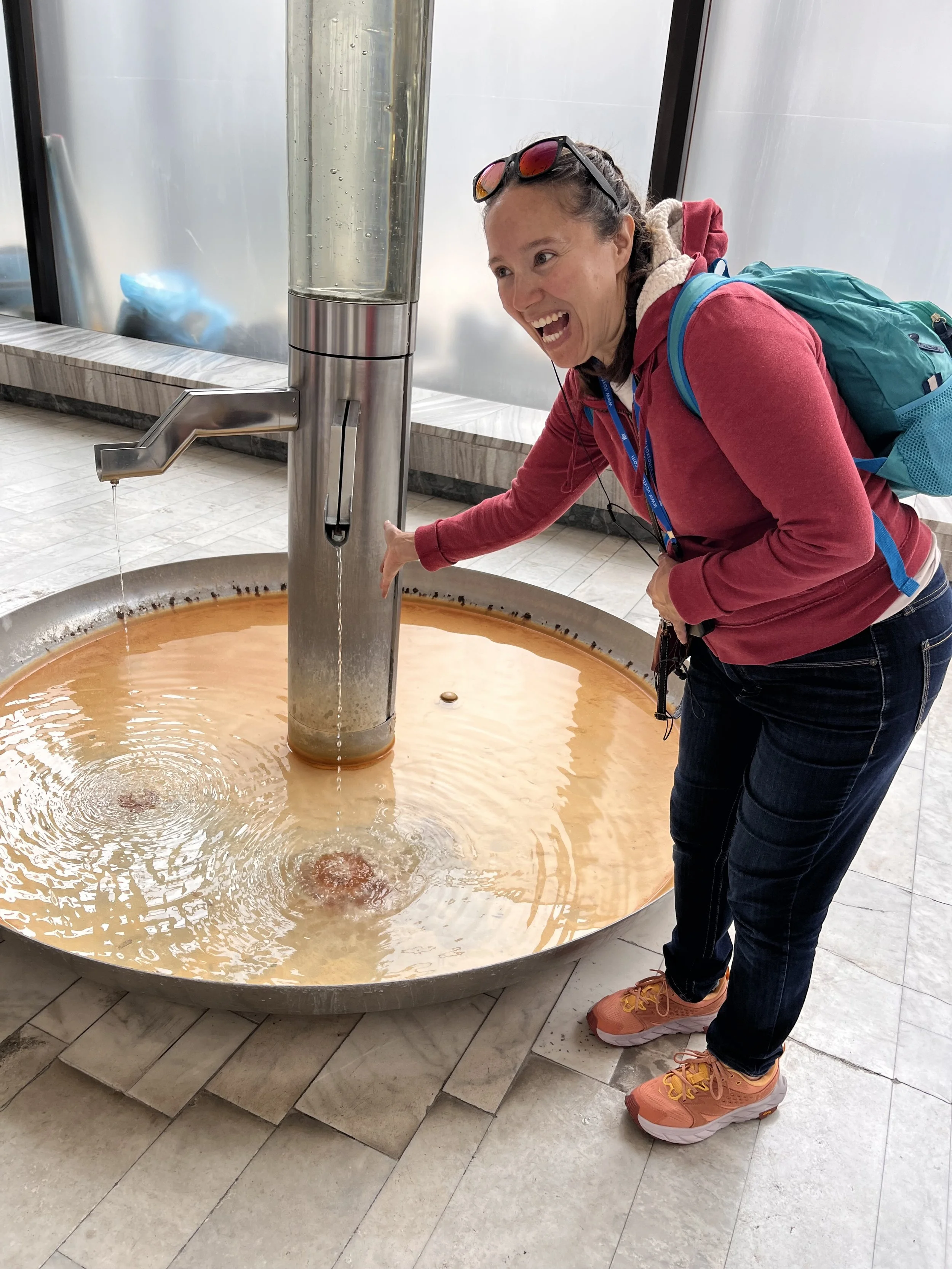Travel and Happiness
Me testing out a natural hot spring in Karlovy Vary, Czechia this summer.
I grew up traveling. It was important to my parents that we all see more of the world than our neighborhood, and I carried that value into adulthood. It was part of the reason I jumped at the chance to spend a summer abroad in Paris and moved to New Zealand after I graduated from my university. No matter where I’ve lived, I’ve regularly budgeted for several travel adventures per year.
However, in the past five years, I’ve become a homebody. I’ve invested a lot of time and energy cultivating friendships and setting up my living space and my schedule to be just so. In short, I love my life! I have little reason to take a break from it by going on vacation. What’s more, travel has become something of a hassle because I feel like I don’t really get a break—my responsibilities don’t go away just because I’ve left home. Instead they pile up, and I have twice the amount of work to do before or after my trip.
About the only enticement I have for travel these days is to spend quality time with loved ones. This summer my spouse’s family convened in Prague to chase down their family history. I married into a family almost as amazing as my own, so I opted to tag along.
Almost immediately I regretted it. The whole 30 hour journey into Prague, I was mentally composing a blog post about all of the ways that travel impairs the six needs: I was sad about leaving my daughter (and my dogs) behind (social), we were completely at the mercy of the airlines’ schedule changes (autonomy), the average traveler is treated like one of a herd of cattle (esteem), and all of the physical discomfort—the headache-inducing interior airport lighting, the near-constant noise, the cramped seating on planes, etc. (physiological). I was wondering how I ever thought traveling was fun.
And then we arrived! Over the course of the next four days, I received reminder after reminder of why traveling away from home and having new experiences is good for the soul:
Autonomy. Simply having the freedom to travel can help with autonomy needs, but other travel decisions along the way can reinforce your sense of autonomy.
Social. Sharing experiences with loved ones strengthens the bonds that tie you together. Not only did I have the chance to spend time with my husband’s immediate family, I also got to know some of his extended family better. The inside jokes and memories we now share will make me even more excited about future family get-togethers. Furthermore, even brief connections with the locals can give a person a wider sense of empathy and social responsibility to communities beyond their own.
Physiological. This depends on how you travel. I’m an active traveler and usually do a lot of walking/hiking while I explore. (I would also be the person who bikes from destination to destination, but I somehow always choose travel companions who find that idea laughable.) Others might get more rest while on vacation and still others fill up on sun and important nutrients through food exploration.
Esteem. Overcoming challenges that inevitably occur on a journey away from home is a major confidence builder.
Growth. This is the need where I find the most satisfaction through travel. I love learning about other people and places, so I dive head first into tours, museums, and discussions with others.
I ended the trip happy to go home but also looking forward to my next travel adventure. I very much appreciate the memories made and connections built over the course of the vacation. In terms of the Four Stages of an Event, for this vacation event, the outcome exceeded my expectations, and I will enjoy looking back on the trip in the future (reflection).
How about you? Are you a traveler? What about it do you love?
Notes:
I was looking into the studies of happiness and vacation travel, and I came across this article showing that others are also conflicted about leaving home—ha! Vacationers Happier, but Most not Happier After a Holiday. However, it appears there’s still a lot of research to be done in this area.
But scientists have looked into how travel impacts the brain, and very real measurable growth does take place. So at the very least, long-term happiness may increase even if you have a miserable trip that doesn’t meet your expectations for short-term happiness.
